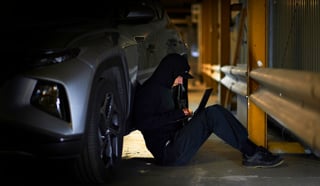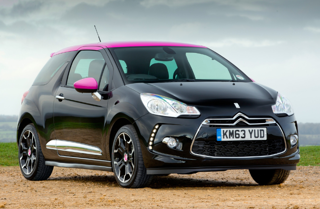Driving down CO2 emissions, managing the grey fleet and cutting costs will remain key considerations for fleet decision-makers in 2011.
However, the suitability of electric vehicles and uncertainty around company car BIK tax rates will also come to the fore.
“Historically, the Government has always announced company car tax benefit-in-kind rates on a three-year cycle so drivers know where they stand. However, that routine has broken down,” says ACFO chairman Julie Jenner.
Employees will be taking delivery of new cars in 2011 with no idea of how much tax they will be paying on a vehicle they will still be driving in 2013/14.
In the past, the Government has given reasonable notice of tax changes. “We want to underline the importance of that to ministers so corporate decision-making can be made in full knowledge of all the tax facts,” says Jenner.
Meanwhile, there’s a warning for fleets considering electric company cars.
“Fleets and company car drivers should not get carried away by the carrot of tax incentives while so much uncertainty exists around key operating issues,” she says.
“Businesses need more clarity around fundamental issues before they have the confidence to operate electric vehicles in any significant quantity.”
But, while fleets think about the viability of electric vehicles, many leasing companies, particularly smaller independent organisations, are considering their own futures in the wake of the recession.
Jenner is concerned that fleets which rely on a sole supply arrangement have no options available if their supplier finds that their credit terms tighten.
“This could then impact on vehicle operations,” says Jenner.
“By taking a safety first approach and introducing more suppliers any risk is potentially reduced.”
Fleets have already adapted many of their working practices in the wake of the recession, but many still need to address the grey fleet.
“We anticipate more organisations will encourage their cash takers back into company cars in 2011 with others seeking specialist fleet management support to manage their grey fleet through systematic checks and
proper auditing,” says ICFM chairman Roddy Graham.
He also predicts reducing business mileage will remain a major focus.
“Pro-active organisations will seek to reduce at-work travel to a minimum by conducting pre-journey assessments, encouraging car sharing and specifying greater use of public transport, vehicle rental for grey fleet drivers and car sharing,” he says.
But, while fleets continue to tackle the grey fleet and cut business mileage, driving down average fleet emission levels and overall wholelife costs will also be key.
“CO2 emissions for the FN50 vehicle parc of 1,299,295 vehicles fell below 140g/km for the first time ever,” says Graham. “We expect a concerted drive to below 130g/km.
“Modelling of wholelife costs will also become more sophisticated and precise, allowing fleet decision makers to make more informed decisions about fleet policy and the composition of their fleet.”
Three key themes for 2011: GDP, inflation and interest rates
“We have become more optimistic about GDP growth during 2011, but remain at the pessimistic end of the consensus range,” says Alan Clarke, UK economist, BNP Paribas.
“We expect the economy to expand by 1.4% year-on-year compared with the consensus expectation of 2% growth and the Bank of England’s 2.6% year-on-year forecast.
“We expect inflation to continue to accelerate in the near term, with CPI inflation reaching 3.5% in January and remaining above 3% for most, if not all of 2011.
“High inflation is likely to prevent the Bank of England from delivering further policy accommodation at least until mid-2011.
“Nonetheless, given our view that the economy will grow much more slowly than the Bank of England expects, the next move is more likely to be loosening than tightening.
“We continue to believe that the first Bank of England interest rate hike will not be delivered until 2012 – later than most other forecasters expect.
“We believe that the main reason our GDP forecast is more pessimistic than most is that the latter has not taken enough account of the likely drag from the Government’s austerity package.
“In particular, we suspect that consumer spending growth will disappoint most people’s expectations. Consumer incomes are not likely to keep pace with inflation, meaning that in real terms, it will be very hard for consumer spending to increase.
“Furthermore, with several indicators showing that the housing market is already in a double dip, the headwinds for consumer spending are likely to be intense.
“With regards to inflation, we remain convinced that spare capacity in the economy will bear down on inflation over the medium-term horizon.
“Crucially, inflation is not high currently because the economy is overheating.
“Around a third of the near-3% inflation rate is due to higher taxes and a further third is due to rising food and energy prices (reflecting external rather than domestic factors).
“Nonetheless, there is a danger that elevated inflation raises inflation expectations, threatening to push up wage demands and hence posing the risk that elevated inflation becomes engrained.”

























adamrollins - 06/01/2011 12:44
Employers wanting to follow the advice from Gary Hull at PWC to improve their mileage recording systems should look at Midas FMS. www.midas-fms.com.